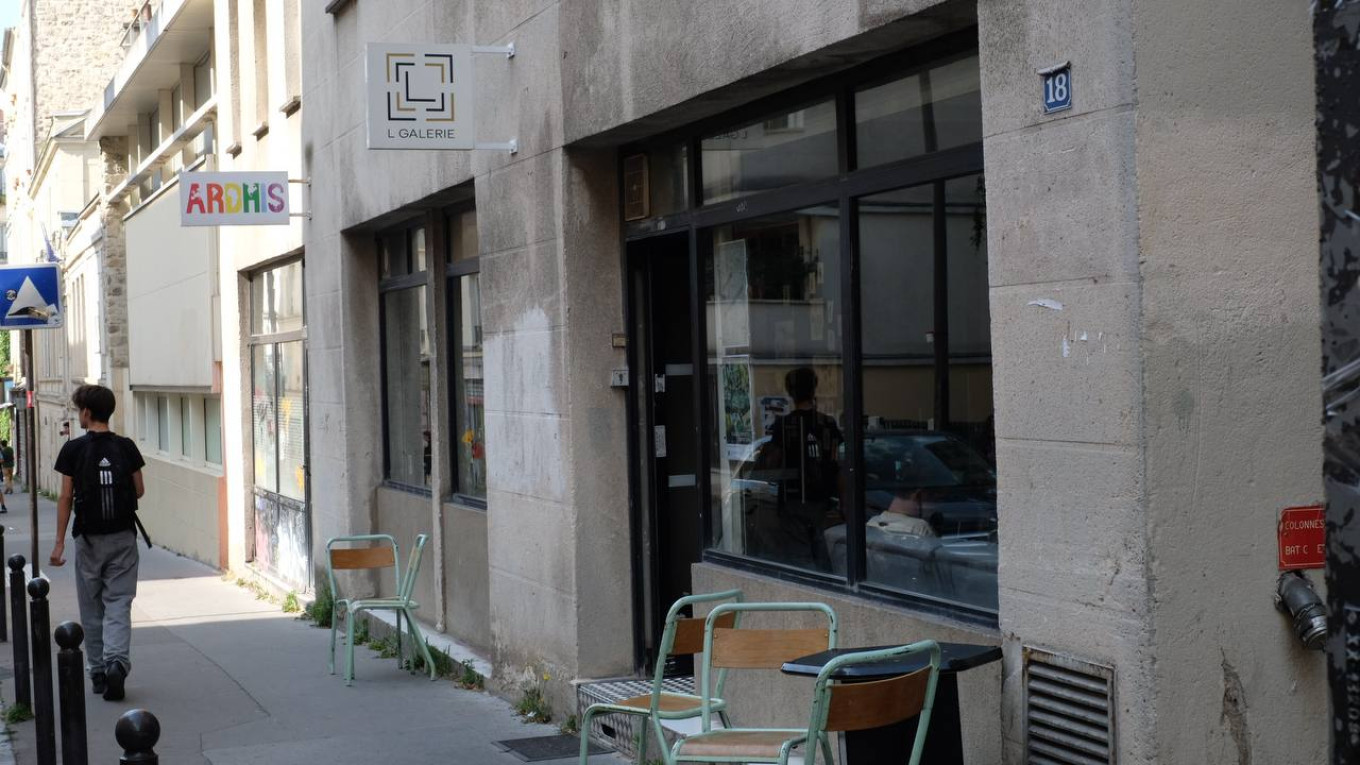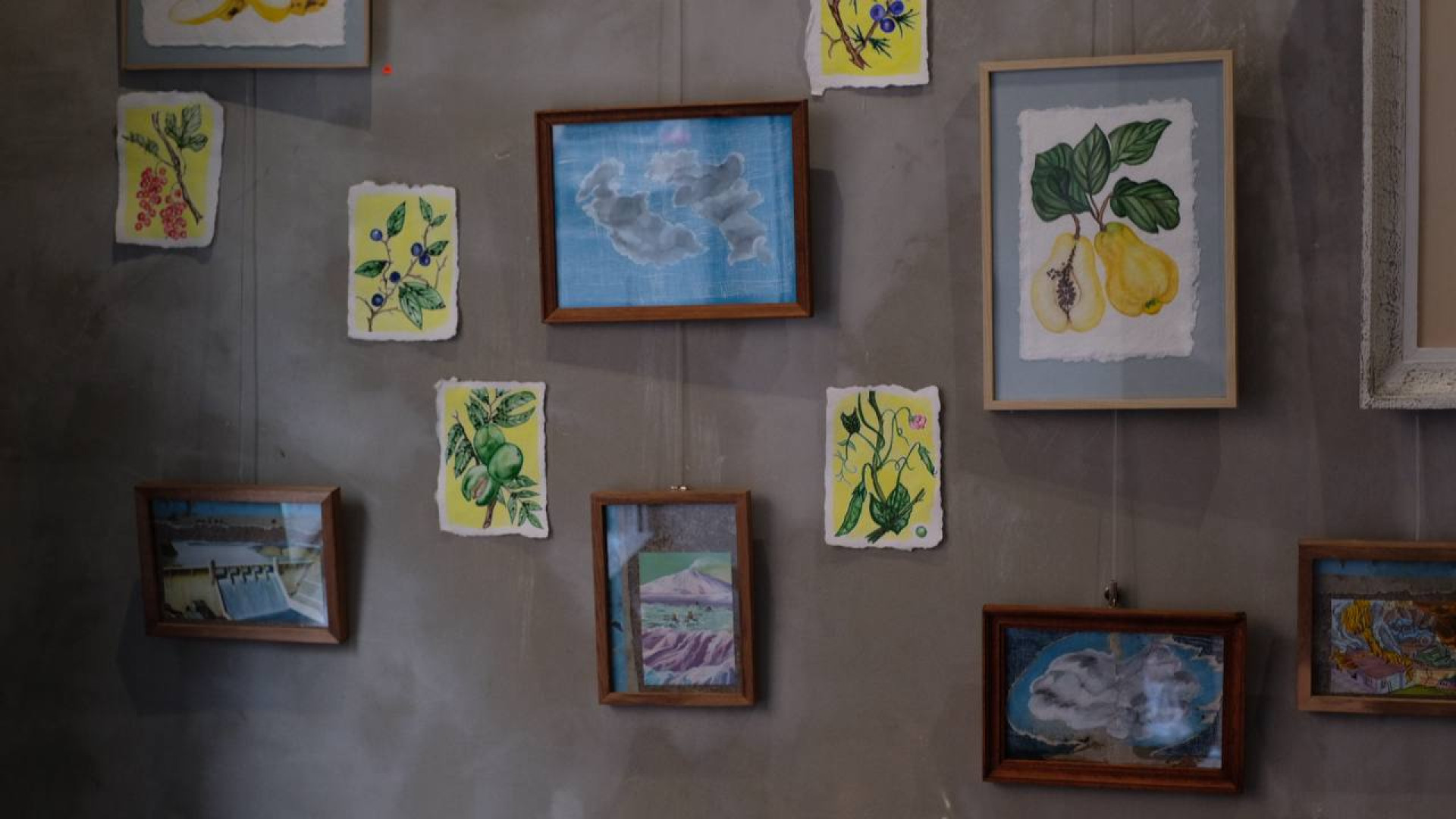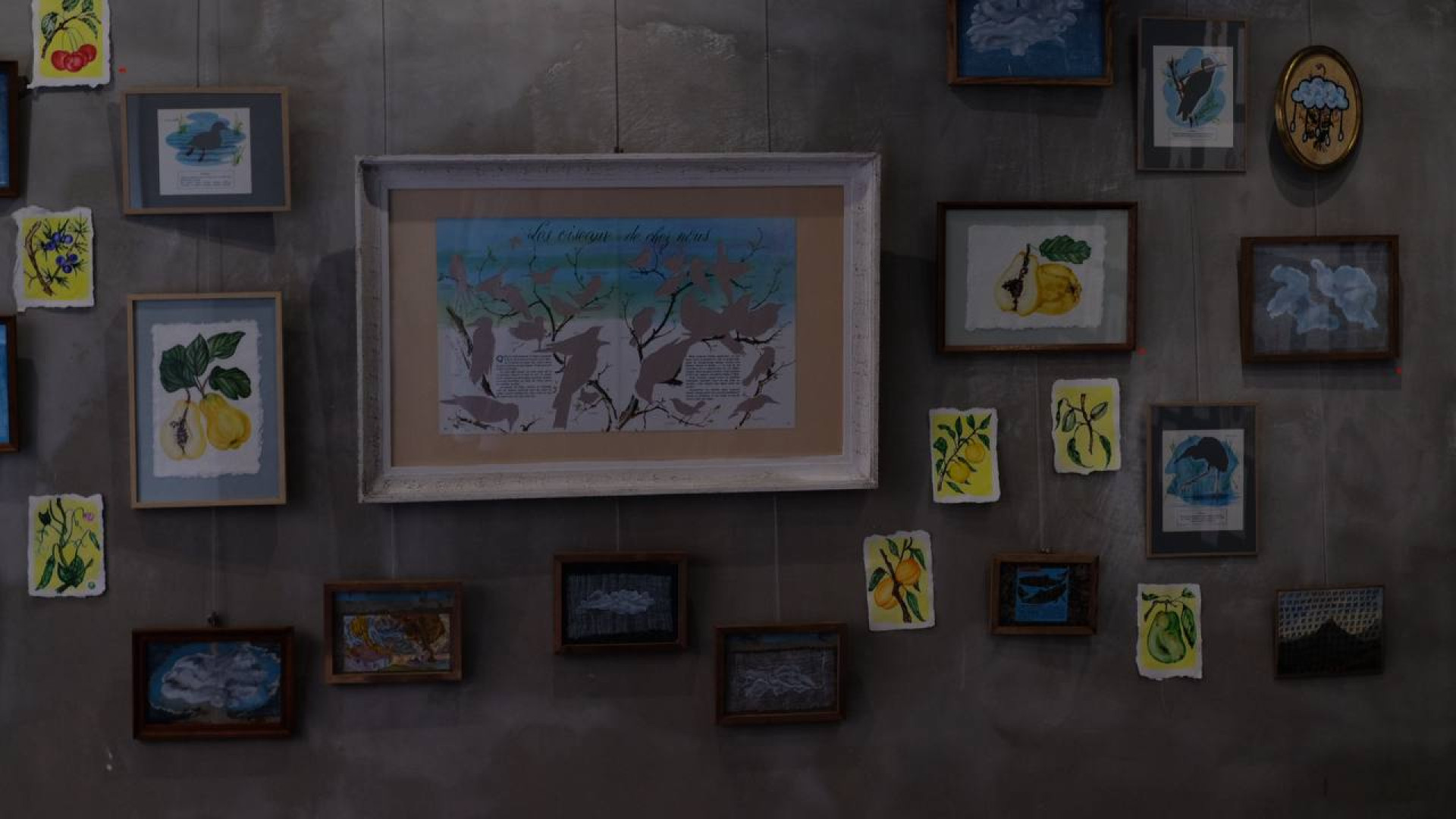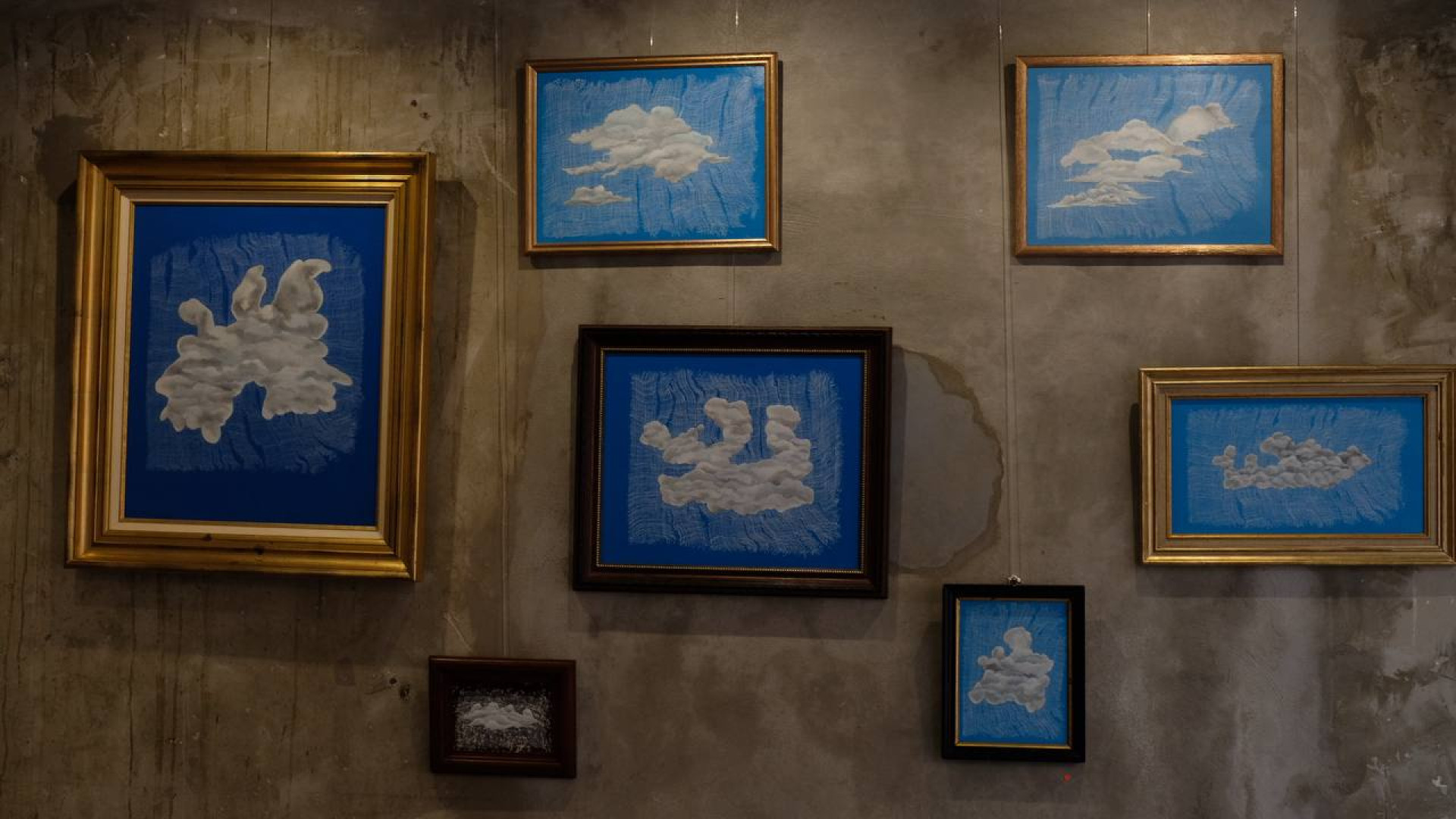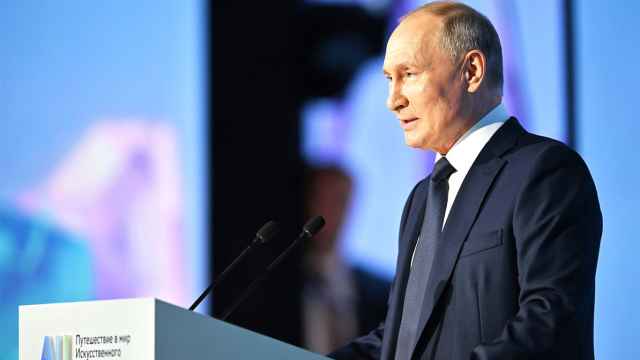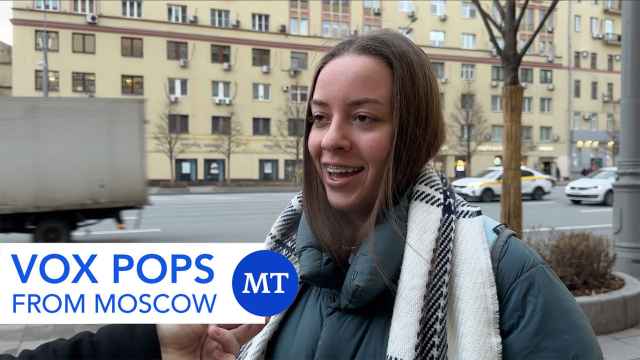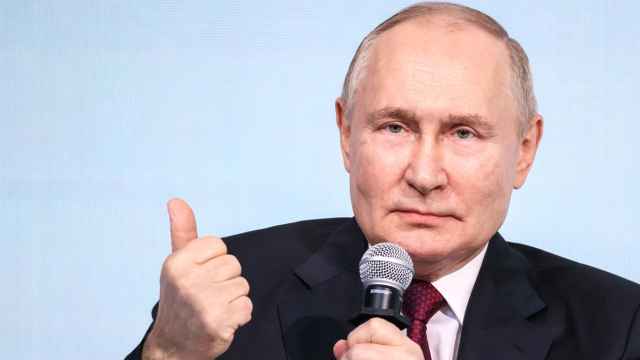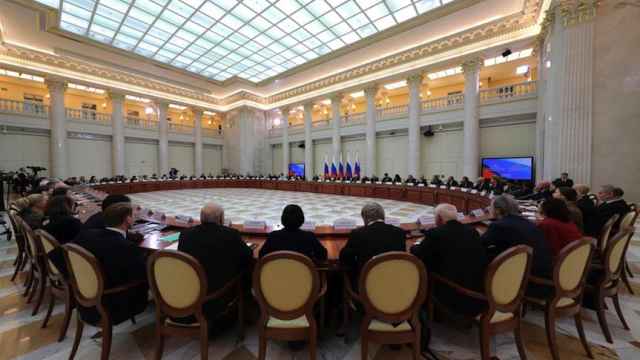PARIS — Are children responsible for the actions of their parents?
This question has split the Russian exile community after reports surfaced that President Vladimir Putin’s alleged daughter is interning at a Paris art gallery known for showcasing anti-war artists from both Russia and Ukraine.
Yelizaveta Rudnova, 22, is widely believed to be the same person as Luiza Rozova (Krivonogikh), the daughter of Svetlana Krivonogikh, a former cleaner-turned-millionaire who is alleged to have had an affair with Putin in the 1990s.
Neither Putin nor Rudnova have ever confirmed their alleged family ties. After the start of Russia’s invasion of Ukraine, Rudnova allegedly posted “No to war” on one of her Instagram accounts, whose authenticity could not be independently verified.
Rudnova, who observers say bears a striking resemblance to Putin, was recently reported to be living in Paris and studying art.
Last week, exiled artist Nastya Rodionova said she had learned that Rudnova was interning at L Association, which is described as “one of the key figures within the Russian-speaking emigre art scene."
“In the context of an aggressive war waged by Russia, people organizing public events involving anti-war artists — sometimes direct victims of the regime — must be transparent and vigilant,” she posted on Facebook this month.
Rodionova told The Moscow Times that she felt morally compelled to go public after L Association’s co-owner confirmed that Rudnova works for them.
“I have no evidence of how close she is to [Putin’s] family,” Rodionova said. “But as a gallery worker, she has access to personal data of anti-war artists, including those being persecuted by the Russian state. I have the right to protect myself and do not work [with the galleries].”
Gallery owners Alexander Vishnevsky and Dmitry Dolinsky defended Rudnova’s presence on their staff, saying they do not investigate employees’ family backgrounds for legal and ethical reasons.
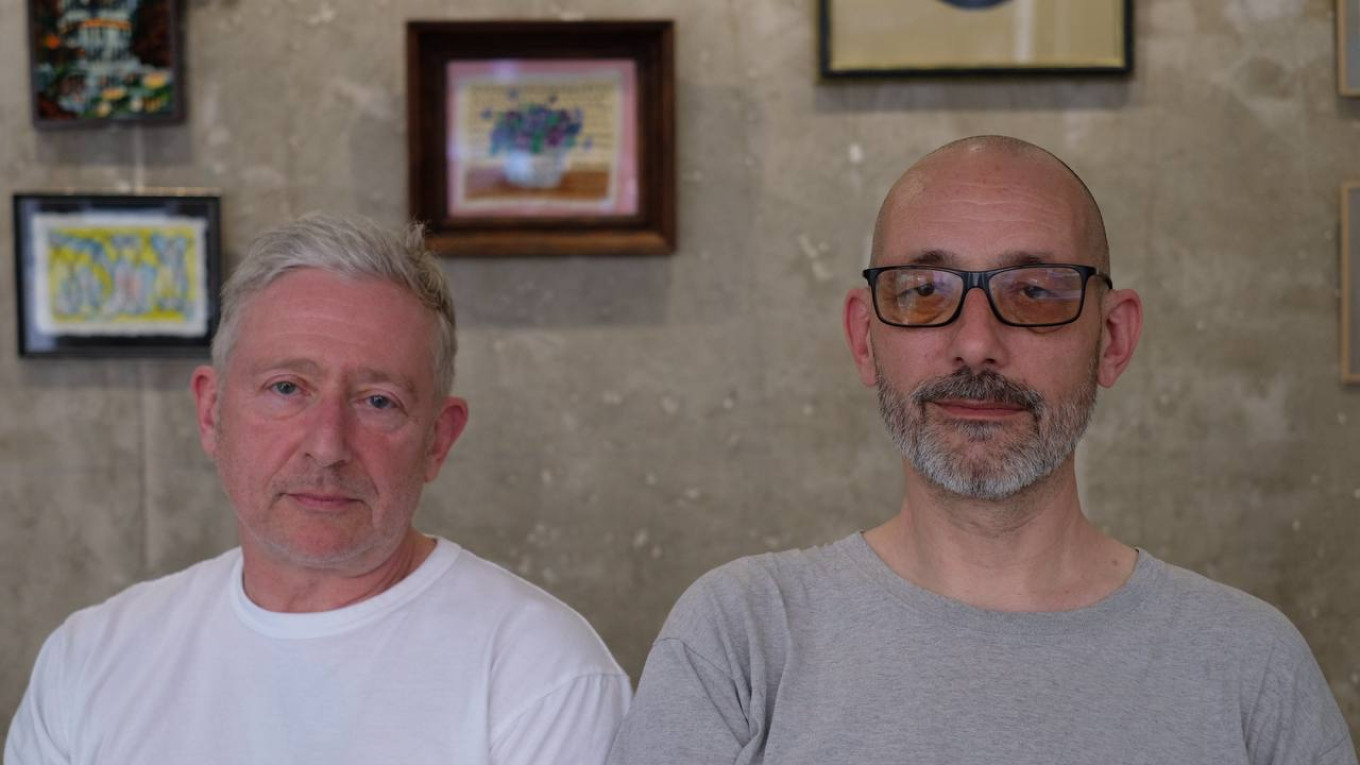
“This information is shocking, of course,” Dolinsky said in an interview with The Moscow Times. “But fundamentally, it doesn’t change anything. We work with a real person who behaves responsibly, expresses reasonable views and helps us support artists — including anti-war artists from Russia and artists from Ukraine.”
Rudnova, who has been working with L Association for several months, has the same responsibilities “as any other assistant” and there had been no signs of “any inappropriate behavior,” they said.
According to the gallery owners, she by all appearances lives like an ordinary person — commuting by metro to work, earning an intern’s salary and joining them through a placement program run by her university.
Sources speaking to exiled Russian media described Rudnova as “a kind and bright person, always ready to help” and “a great colleague.”
“There’s a presumption of innocence,” Dolinsky and Vishnevsky told The Moscow Times. “As for the moral aspect, we have no evidence or indication that she holds any pro-war, pro-Putin or anti-Ukrainian views.”
“No one has presented any evidence that she is Putin’s daughter. Yet we are being criticized for not disclosing her personal data. By law, we are prohibited from doing so based solely on rumored kinship,” they said.
Yet, according to the gallery owners, Rudnova did not deny that her mother was Svetlana Krivonogikh.
Russian investigative journalists in 2020 estimated Krivonogikh’s assets at around $100 million, including property she allegedly received from figures close to Putin as well as shares in Bank Rossiya. Krivonogikh was sanctioned by the U.K. in 2023.
Despite the gallery’s firm defense of its actions, observers’ reactions have been mixed.
Some expressed concern about the possible security risks for artists in exile, whose work would be illegal under Russian law, as well as the ethical risks for Ukrainian artists, whose country is the victim of Putin’s war. Others cautioned against speculation in the absence of evidence.
Exiled anti-war Russian artist Slava PTRK is set to open his new solo exhibition on Russia’s protest movements in the 2010s next week at L Gallery, one of L Association’s art spaces.
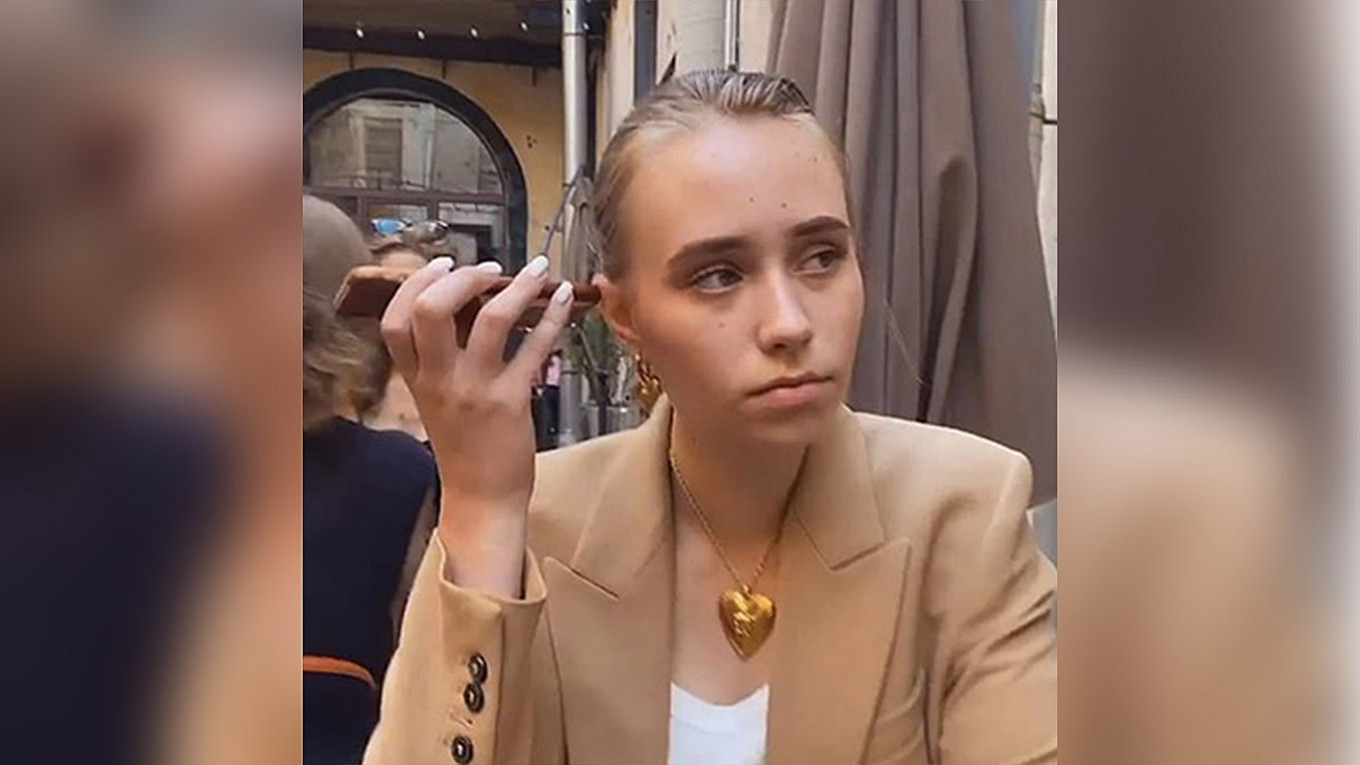
He told The Moscow Times that Rodionova’s disclosure had had no impact on his collaboration with the space.
“I don’t know her [Rudnova’s] political views, but I do know that assistants at her level don’t influence who or what gets exhibited,” he said.
Although he said he believes that background checks might be justified in order to work in opposition political groups or media, he questioned whether the same should apply to an art gallery in Paris.
"I don’t think this is a sensitive issue for exiled artists,” Slava PTRK said. “Several of my friends told me they had heard the rumors and it didn’t affect their communication with Liza [Rudnova].”
Pavel Otdelnov, an exiled artist based in London, shared a similar view.
"It’s very important to distinguish between what a person is responsible for and what they’re not. No one can choose their parents…it makes more sense to judge people by their personal actions, not by who they’re related to. I wouldn’t base a decision to collaborate, or not collaborate, on that," he told The Moscow Times when asked whether such reports would affect his potential collaboration with the art space.
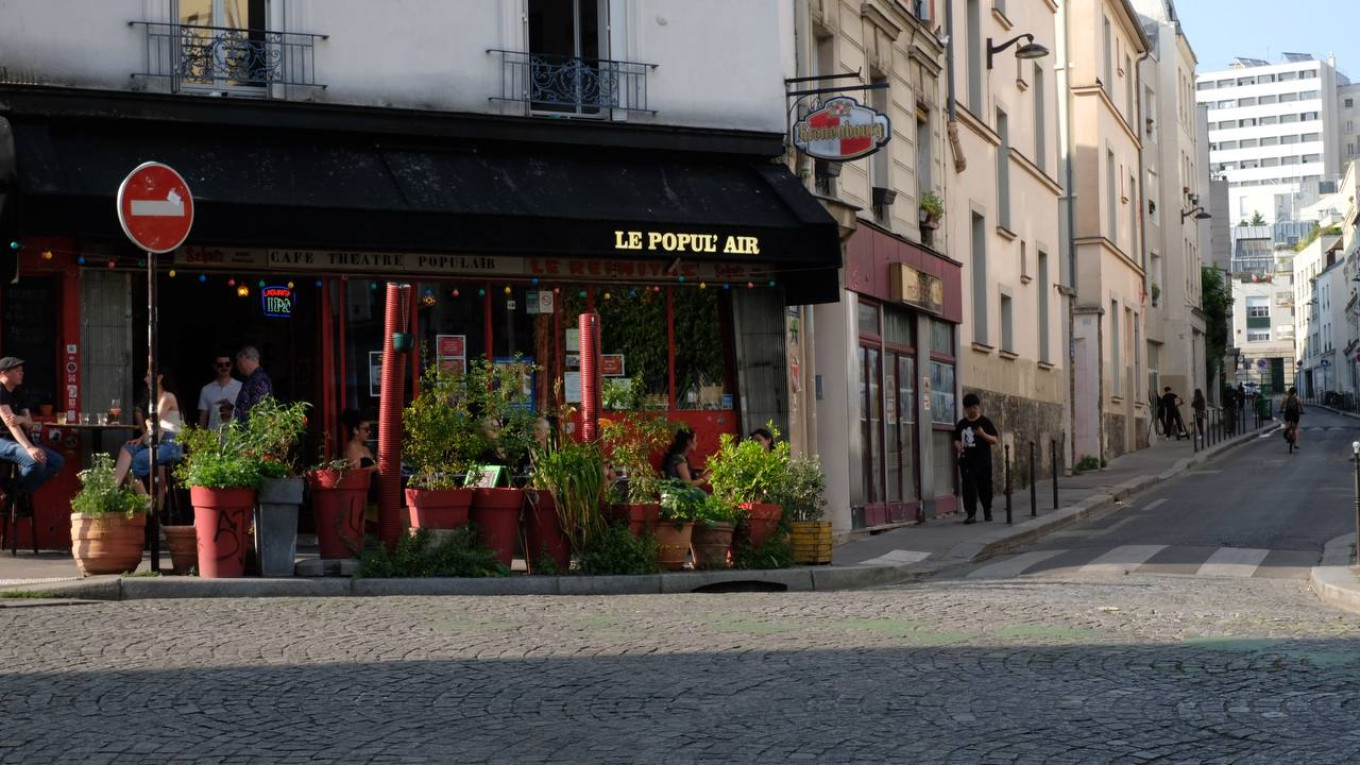
No artists have publicly withdrawn from L Association's upcoming exhibitions since the revelations, and its galleries’ calendars remain fully booked for the next six months with dozens of artists from various countries, according to Dolinsky and Vishnevsky.
Yet those who work exclusively with anti-war art argue that any institution curating such exhibitions must take special care and responsibility when engaging with politically vulnerable artists.
“If this were simply a gallery showing neutral contemporary art, I don’t think there would be any debate at all, since someone coming to work could be evaluated purely on their professional merits,” said Vladimir Shalamov, the curator of All Rights Reversed, a Berlin-based gallery that helps artists who are threatened with reprisals in Russia for their work.
“But I don’t see a problem here since this information is now public and artists can make decisions [on collaboration] with fuller knowledge and transparency,” Shalamov told The Moscow Times.
The Moscow Times sent a request for comment to Rudnova but did not receive a response.
Rodionova, the arist who posted the revelations last week, said she stood by her decision to go public despite the backlash she said she received for doing so.
“Artists — Russian, French and of course Ukrainian — can now make their own decisions about whether to collaborate with the gallery based on the full context,” she said.
A Message from The Moscow Times:
Dear readers,
We are facing unprecedented challenges. Russia's Prosecutor General's Office has designated The Moscow Times as an "undesirable" organization, criminalizing our work and putting our staff at risk of prosecution. This follows our earlier unjust labeling as a "foreign agent."
These actions are direct attempts to silence independent journalism in Russia. The authorities claim our work "discredits the decisions of the Russian leadership." We see things differently: we strive to provide accurate, unbiased reporting on Russia.
We, the journalists of The Moscow Times, refuse to be silenced. But to continue our work, we need your help.
Your support, no matter how small, makes a world of difference. If you can, please support us monthly starting from just $2. It's quick to set up, and every contribution makes a significant impact.
By supporting The Moscow Times, you're defending open, independent journalism in the face of repression. Thank you for standing with us.
Remind me later.



